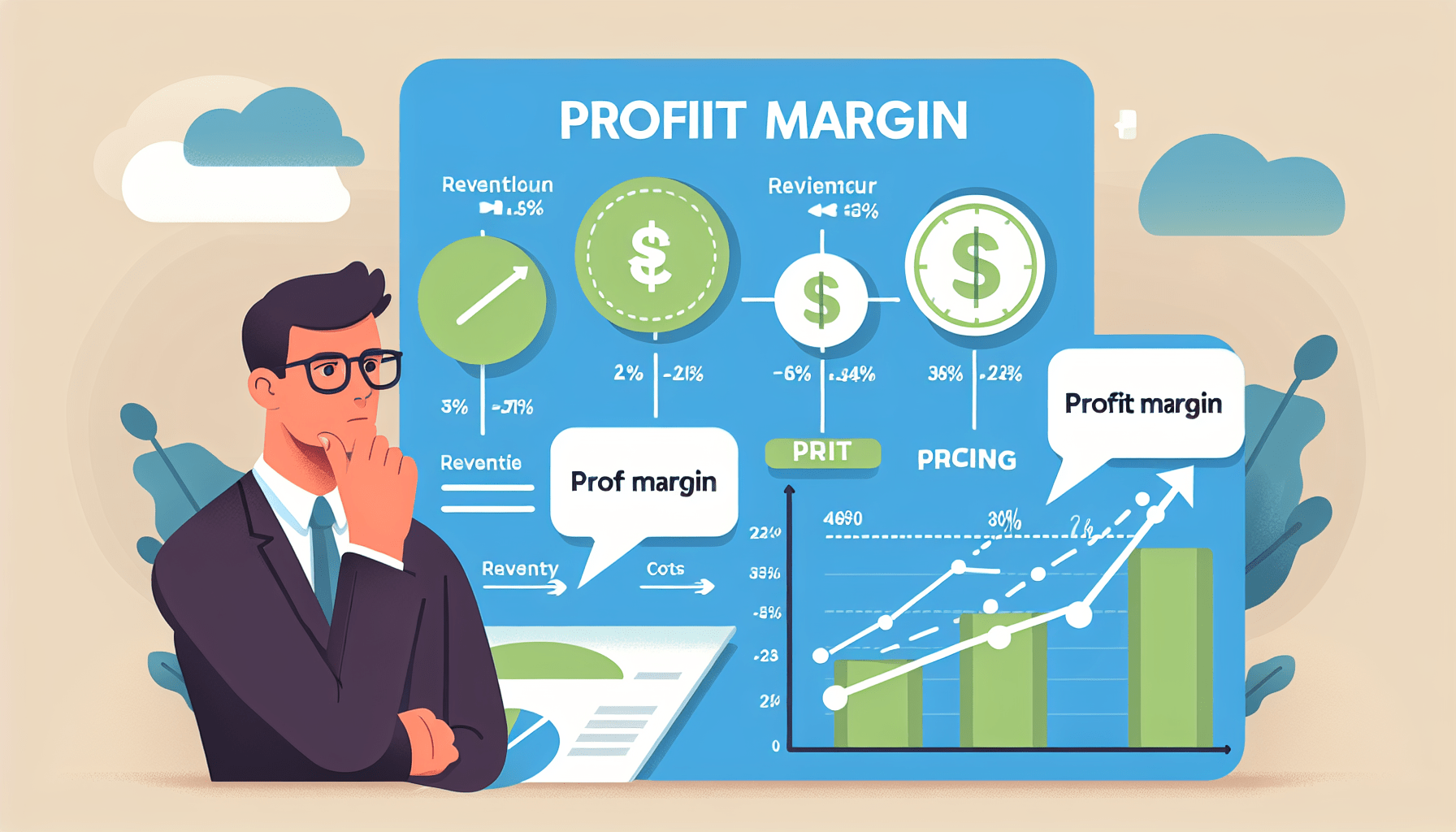What Are Three Examples Of Expenses A Business Might Occur?
Running a business involves juggling various expenses, and it’s important to understand the key ones. In this article, we will explore three examples of expenses that a business might typically encounter. From regular operational costs to unexpected emergencies, these expenses play a crucial role in shaping the financial health of a business. So, without further ado, let’s explore these examples and gain valuable insights into the world of business expenses.

Employee Expenses
When running a business, one of the most significant expenses you will encounter is employee expenses. This category includes salaries, benefits, healthcare, travel, accommodation, and training and development.
Salaries are the main component of employee expenses. As an employer, you need to ensure that your employees are fairly compensated for their work. This includes not only their base salary but also any bonuses or commissions they may be entitled to. By providing competitive salaries, you can attract and retain top talent, which is essential for the success of your business.
In addition to salaries, providing benefits and healthcare coverage for your employees is crucial. Health insurance, dental care, and retirement plans are all examples of benefits that businesses typically offer to their employees. By providing these benefits, you not only take care of your employees’ well-being but also help improve employee morale and loyalty.
Another aspect of employee expenses is travel and accommodation. If your business involves traveling, you will need to cover the cost of transportation, accommodation, and meals for your employees. Whether it’s attending industry conferences or meeting with clients, these expenses are necessary for the growth and expansion of your business.
Lastly, investing in the training and development of your employees is essential. This includes providing opportunities for them to attend workshops, seminars, and online courses. By investing in their professional growth, you not only enhance their skills and knowledge but also benefit your business in the long run. Well-trained employees are more productive, efficient, and capable of contributing to the success of your business.
Operational Expenses
Operational expenses are another crucial area that businesses need to consider. These expenses cover rent and utilities, office supplies, insurance, and maintenance and repairs.
Rent and utilities involve the cost of the physical space that your business operates in, such as an office or a retail store. Depending on the location and size of your business, this expense can vary greatly. It is important to carefully evaluate your needs and budget to find a suitable space that meets your requirements without stretching your finances too thin.
Office supplies are essential for the day-to-day operations of your business. This includes everything from pens and paper to computers and printers. It is important to have a well-stocked inventory of office supplies to ensure that your employees can carry out their tasks efficiently.
Insurance is another vital aspect of operational expenses. Business insurance helps protect your assets, employees, and customers from unforeseen events or accidents. This can include general liability insurance, property insurance, workers’ compensation insurance, and more. Investing in comprehensive insurance coverage is crucial to safeguarding your business and mitigating risk.
Maintenance and repairs are ongoing expenses that businesses need to account for. Whether it’s fixing broken equipment or repairing the physical space, regular maintenance is necessary to keep your business running smoothly. By investing in maintenance and repairs, you can prolong the lifespan of your assets and prevent costly breakdowns or accidents.
Marketing and Advertising Expenses
To grow your business and reach new customers, you need to invest in marketing and advertising. This category includes expenses related to advertising campaigns, website design and maintenance, social media marketing, and print materials.
Advertising campaigns are a crucial component of marketing expenses. This can involve various channels such as television, radio, billboards, and online ads. The costs associated with running advertising campaigns can vary greatly depending on the reach and effectiveness of the chosen medium. However, a well-executed advertising campaign can generate significant returns on investment by attracting new customers and increasing brand awareness.
In today’s digital age, having a strong online presence is vital for any business. This means investing in website design and maintenance. Your website serves as a virtual storefront and is often the first point of contact for potential customers. By creating an appealing and user-friendly website, you can enhance your brand image and attract more visitors. Additionally, regular maintenance and updates ensure that your website remains secure and functional.
Social media marketing has also become a valuable tool for businesses to connect with their target audience. Whether it’s creating engaging content, running targeted ads, or interacting with customers, social media can be a cost-effective way to promote your business. Allocating resources to social media marketing allows you to engage with your audience, build brand loyalty, and increase sales.
Print materials, although considered traditional marketing, still play a significant role in advertising. This includes brochures, business cards, posters, and promotional materials. These materials can help you reach a wider audience and provide tangible information about your products or services. While the world becomes increasingly digital, print materials still have their place in a well-rounded marketing strategy.
Technology Expenses
In today’s digital age, technology is an integral part of running a business. technology expenses cover everything from hardware and software to website hosting and domain, IT support, and data storage and security.
Investing in the right hardware and software is crucial for the smooth operation of your business. This may include computers, servers, printers, and other necessary equipment. Additionally, software such as productivity tools, accounting software, and customer relationship management (CRM) systems help streamline your business processes and improve efficiency. While technology expenses can be significant, the benefits of having the right tools in place can outweigh the costs in the long run.
Website hosting and a domain are essential expenses if you have an online presence. These expenses ensure that your website is accessible to users and that your domain name accurately represents your brand. Choosing reliable hosting services and a memorable domain name are important considerations when establishing your online presence.
IT support is another critical aspect of technology expenses. Whether it’s troubleshooting technical issues or setting up new systems, having access to IT professionals can save your business valuable time and prevent costly disruptions. Outsourcing IT support or having an internal IT team can provide the expertise and support needed to keep your business running smoothly.
Data storage and security are crucial concerns in today’s digital landscape. Protecting your business and customer data from hackers, system failures, or other threats is essential. Investing in secure data storage and backup solutions, as well as robust cybersecurity measures, can help safeguard sensitive information. By prioritizing data storage and security, you can minimize the risk of data breaches and maintain the trust of your customers.

Inventory Expenses
If your business involves selling physical products, inventory expenses will be a significant part of your budget. This category includes the cost of goods sold, storage and warehousing, inventory management software, and shipping and transportation.
The cost of goods sold refers to the direct costs associated with producing or purchasing the products you sell. This includes the cost of materials, labor, and overhead related to production. It is important to carefully calculate the cost of goods sold to ensure that you are pricing your products appropriately and maintaining profitability.
Storage and warehousing expenses come into play if you need to store inventory before it is sold. This can include renting warehouse space or investing in your own storage facilities. Efficient inventory management and warehousing practices are crucial for minimizing costs and ensuring that products are readily available when customers make a purchase.
Inventory management software provides a comprehensive solution for tracking and organizing your inventory. This software allows you to streamline your operations, optimize inventory levels, and reduce the risk of stockouts or overstocking. By investing in inventory management software, you can improve efficiency, reduce costs, and enhance customer satisfaction.
Shipping and transportation expenses are necessary for delivering products to your customers. This can include the cost of shipping materials, transportation services, and any associated fees or taxes. Depending on the size and weight of your products, as well as the distance they need to travel, shipping and transportation costs can vary significantly. It is important to carefully consider different shipping options and negotiate favorable rates to minimize expenses.
Professional Services Expenses
There are various professional services that businesses may require, and these expenses can add up. This category includes legal and accounting services, consulting fees, contractors and freelancers, and licensing and certifications.
Legal and accounting services are essential for business compliance and financial management. Hiring lawyers and accountants ensures that your business adheres to legal requirements, such as filing taxes and maintaining proper recordkeeping. They also provide valuable advice and guidance on business decisions, contracts, and financial reporting. Although legal and accounting services can be costly, their expertise is crucial for running your business smoothly.
Consulting fees cover the cost of hiring external consultants who provide specialized advice or assistance in areas such as marketing, strategy, or human resources. Consultants bring a fresh perspective and expertise to your business and can help identify areas for improvement or growth. While consulting fees may seem like an additional expense, the insights and recommendations they provide can have a significant impact on your business’s success.
Contractors and freelancers are often hired on a project basis to perform specific tasks or projects that fall outside of your business’s core competencies. This can include graphic design, website development, content creation, or other specialized services. Hiring contractors and freelancers allows you to leverage their expertise without the long-term commitment of hiring additional employees. While this can be a cost-effective option, it is important to carefully manage and budget for these expenses.
Licensing and certifications are necessary expenses in certain industries. This may include obtaining licenses or permits to legally operate your business or ensuring that your employees have the necessary certifications for their roles. These expenses help demonstrate professionalism, maintain compliance, and instill confidence in your customers. While licensing and certifications can be an investment, they are crucial for the credibility and legitimacy of your business.
Loan and Interest Expenses
For many businesses, loans and interest expenses are a reality. This category includes loan repayments, interest on loans, credit card interest, and bank fees.
Loan repayments comprise the principal amount borrowed plus interest and any associated fees. Whether it’s a business loan to fund expansion or a line of credit to manage cash flow, repaying loans is an ongoing financial responsibility. It is important to carefully manage your loan repayments to avoid defaulting and negatively impacting your creditworthiness.
Interest on loans is an additional expense incurred when borrowing money. The interest rate can vary depending on various factors, such as the type of loan, repayment terms, and your creditworthiness. While interest expenses can add up, borrowing money can provide the necessary funds to drive business growth and expansion. Carefully evaluating loan options and negotiating favorable interest rates can help minimize this expense.
Credit card interest is another common expense for businesses that rely on credit cards for purchasing goods or services. If you carry a balance from month to month, you will incur interest charges on the outstanding amount. It is important to carefully manage credit card usage and make timely payments to minimize interest expenses.
Bank fees can also contribute to your overall expenses. These may include monthly service fees, transaction fees, or fees for additional services such as wire transfers or cash handling. It is important to review your bank agreements and negotiate favorable terms to minimize these fees. Additionally, exploring alternative banking options, such as online banks or credit unions, may offer cost-saving opportunities.
Taxes
Taxes are a necessary part of doing business. This category includes income tax, sales tax, property tax, and payroll taxes. Understanding and managing your tax obligations is crucial for the financial health and compliance of your business.
Income tax is imposed on the profits earned by your business. The tax rate can vary depending on the legal structure of your business and your annual income. It is important to keep accurate financial records, claim eligible deductions, and file tax returns in a timely manner to avoid penalties and ensure compliance. Consulting with a tax professional can help you navigate the complex world of business taxation and optimize your tax strategy.
Sales tax is a consumption tax imposed on the sale of goods and services. The tax rate and regulations can vary depending on the location of your business and the products or services you offer. Collecting and remitting sales tax accurately and on time is essential for avoiding legal issues and maintaining customer trust. Implementing robust sales tax management systems and staying up to date with changing regulations is crucial for smooth operations.
Property tax is levied on real estate and other property owned by your business. The tax rate is based on the assessed value of the property. Property tax can be a significant expense, especially for businesses that own large properties or multiple locations. Evaluating your property tax assessments, exploring available exemptions, and appealing assessments if necessary can help reduce this expense.
Payroll taxes are taxes levied on the wages and salaries paid to your employees. This includes taxes such as Social Security and Medicare taxes, as well as unemployment taxes. As an employer, it is your responsibility to withhold and remit these taxes on behalf of your employees. Compliance with payroll tax requirements is crucial for avoiding penalties and maintaining a positive relationship with your employees.
Research and Development Expenses
For businesses focused on innovation and product development, research and development (R&D) expenses are an important consideration. This category includes product research, prototype development, lab equipment, and patent filings.
Product research involves studying the market, identifying customer needs, and exploring potential product ideas. This can include market research surveys, focus groups, and competitive analysis. Investing in product research helps ensure that you are developing products that meet customer demand and have a competitive advantage.
Prototype development is the process of creating a working model of a product to validate its design and functionality. This can involve engineering, design, and manufacturing costs. Prototyping allows you to test and refine your product before mass production, helping ensure its success in the market.
Lab equipment is necessary for businesses involved in scientific or technical research. This can include specialized equipment, tools, and materials required for experimentation or testing. Investing in high-quality lab equipment is crucial for accurate results and maintaining a competitive edge in your industry.
Patent filings involve the costs associated with protecting your intellectual property. This includes filing patent applications, paying administrative fees, and hiring patent attorneys if necessary. Obtaining patents can provide the legal protection needed to prevent others from copying or using your inventions. While patent filings can be a significant expense, they are essential for safeguarding your innovative ideas and maintaining a competitive advantage.
Training and Education Expenses
Investing in the training and education of your employees is essential for the growth and success of your business. This category includes expenses related to conferences and seminars, online courses and certifications, workshops and training sessions, and educational materials.
Conferences and seminars provide valuable opportunities for networking, learning from industry experts, and staying updated on the latest trends and developments. Attending conferences and seminars allows your employees to gain new insights, expand their horizons, and bring fresh ideas back to your business.
Online courses and certifications offer flexible learning options for your employees. These courses can cover a wide range of topics, from technical skills to leadership development. Online learning allows your employees to learn at their own pace and acquire the knowledge needed to excel in their roles.
Workshops and training sessions provide hands-on learning experiences for your employees. These can be conducted internally or externally and can focus on specific skills or areas that align with your business goals. By investing in workshops and training sessions, you empower your employees to enhance their skills and contribute more effectively to your business.
Educational materials, such as books, e-books, or industry publications, are valuable resources for ongoing learning and development. These materials provide insights and knowledge that can help your employees stay informed and up to date with industry best practices. Providing access to educational materials demonstrates your commitment to the growth and development of your workforce.
In conclusion, expenses are an inevitable part of running a business. By understanding and carefully managing the various types of expenses, you can ensure the financial health and success of your business. From employee expenses to taxes and research and development, each category plays a crucial role in the overall financial operations of your business. By allocating resources effectively and making informed decisions, you can optimize your spending and drive growth and profitability. Remember, investing in your business, your employees, and your future is key to long-term success.


